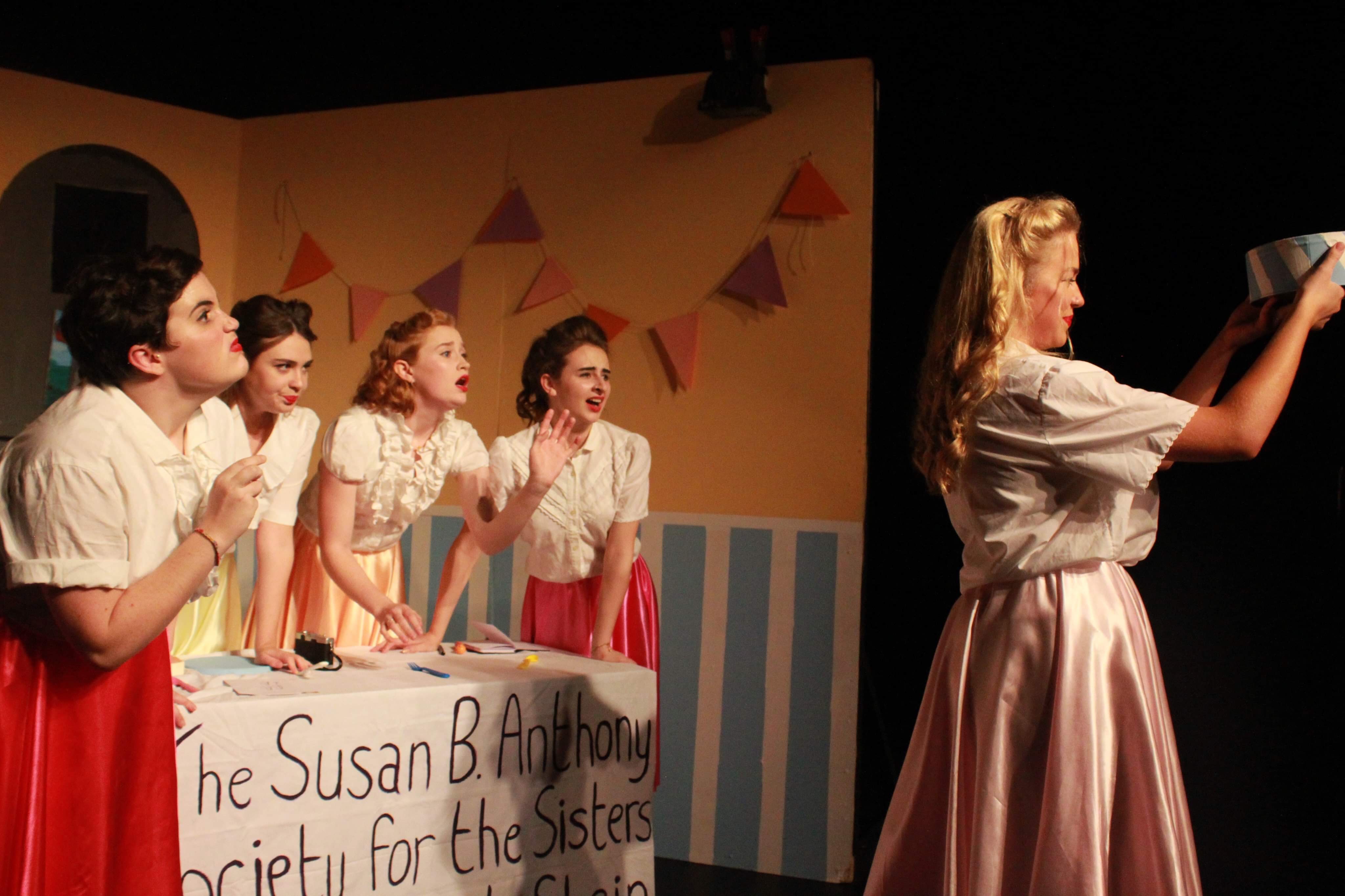It’s 1956 and I, along with the rest of the audience, am at the Susan B. Anthony Society for the Sisters of Gertrude Stein’s annual quiche breakfast. We are in a mysteriously bomb-proof society meeting hall, evidenced by the ominous blast door which looms over the pastel bunting and quiche tins.
The lights go down and with an energetic entrance Wren Robin, the “sister” running proceedings, welcomes us to the meeting. The committee enters one by one with toothy smiles, white blouses, and coiffed hair befitting a real 1950s gal – Vern, Dale, Ginny, and finally Lulie, who enters carrying the prize-winning quiche as if it is her own child.
The social hierarchies and dramas of the society soon reveal themselves through quick dialogue and brief moments of sensual sapphic tension which are inevitably interrupted by the matters at hand, most importantly the all-important quiche competition. One running joke consists of a disgraced former committee member Majorie, an audience member in the first row, who is the recipient of various underhanded comments in an acutely Mean Girls style. The comic timing is impeccable – asides are delivered perfectly, and the conviction of the characters as they venerate the glorious egg is absolute. The audience is laughing throughout most of the opening sequence.
The winning quiche has just been announced when sirens ring out. This is, of course, 1956, and the threat of the atomic bomb is both very real and totally distant in the world of the Susan B. Anthony Society for the Sisters of Gertrude Stein. In a sequence which alternates between cacophonous sound and petrified silence, the sisters rush to protect themselves, each other, and Vern’s prize quiche. As the noise settles outside and they realise they may just be the only ones left alive, they turn quickly to a far more chilling realisation: this may be the last ever quiche.
It’s the cast and the direction which really make this production of Andrew Hobgood and Evan Linder’s 2014 script. The costume design is clean and effective: white blouses, silky skirts in varying shades, and matching bold red lips give the characters a cartoonish look reminiscent of ‘50s pop art, which pairs perfectly with the energy and vitality that holds throughout the hour-long show. Their expressions are dramatic, the movements exaggerated, voices regularly raised into screams of delight, fear, or sheer enthusiasm for quiche. Each of the five actors shine, in particular Maeve Harris as newcomer Ginny, whose “pick me” enthusiasm bordering on desperation resonates throughout her lines and movements. The comedy is as sharp and precise as the utensils used to serve the beloved quiche.
There’s an explicit shift as the characters realise they are no longer beholden to 1950s decorum and societal expectations. In their new society of women, they no longer have to pose as widows, but are free to proclaim themselves lesbians – which they do repeatedly. It’s refreshing, in the ‘50s society landscape of underhanded comments and social subtleties, when the script dispenses with innuendo to openly describe the women’s relationships with each other and their own sexuality. In being trapped in the bunker, we realise, they have in a way been freed.
The multiple twists of the ending culminate in a dramatic conclusion which is surprisingly satisfying, perfectly balancing comedy with gravity, and another rendition of the society’s theme song. Is there something profound in this adoration of the egg, a symbol of the ability to foster new life, or in the confusing innuendo associated with “eating quiche”? If it is in the hands of these women to repopulate the world, that’s a world I’d like to live in. On the whole, this play was a deliciously chaotic adventure carried by the charm of its five excellent stars. All hail the egg.






